Watch the live interview below
Transcription (was completed by automated process. Please ignore any speech-to-text errors)
[00:00:00] So the agreed subject was the best practices to consistently get more listings.
[00:00:09] To I would know I’d say that I was sure I list those views. Want to do that? So how are we going to start the conversation? Where do you want to go with this?
[00:00:19] Probably. Let’s start at the kind of the beginning of if you’re gonna be starting to drive and sellers and get more listings. Where do you start? And the first place is obviously a personal list. So maybe we can start on the personal lists and a few things you do on that.
[00:00:35] Yeah, that sounds great. Off you go.
[00:00:37] Okay, great. So first off, a personal list is that list of people that you know and in what I find with most agents is they try to pre qualify list. Don’t do that. Okay. What you’re looking for is very simply make a list of everyone who knows you that if they were to see you on the straight, they go. Hi, Jill or hi, baby. Okay. And and that becomes your personal list. And here’s why it’s so important. Those people who know you already, they already know and like you are eight to 10 times more likely to do business with you than someone who hasn’t met you yet. So if you’re trying to drive in more business from sellers or buyers, that’s the place to start first. And so make a list. One of the things that, you know, if you’re just getting started. If you think about the old time Yellow Pages, you know, you have like accounting, actuarial baker, chiropractor just goes through those type of topical indexes and think of who do I know that’s a accountant. Who do I know? That’s a baker who I know that’s a chiropractor. And build your list. And then and that’s going to be the first start in getting that direction.
[00:01:48] And it’s so important then it can start. So many agents that are reasonably successful, that haven’t really concentrated on building this fundamental list. And it’s so important, isn’t it?
[00:02:02] It is. I you know, I was talking just a short while ago, one of our clients is a 30 plus year agent, does 18 million a year in volume, and he’s in this coaching program. OK. And so the coach got all their coaching clients together, which are all very similar to this person.
[00:02:20] And they went around the group and asked in 2018, where did most of your business come from? You want to take a guess as to where the majority of their business came from? They list their personal list. Exactly. And so that’s how it top producers are getting there and sustaining their business. Then whether you’re a top producer or whether you’re just getting started. That’s the number one place that you’ll get the most business from if you simply work it. Right.
[00:02:48] And and in some ways, it’s a little easier, isn’t it? You got your small phone, you got five spook people.
[00:02:55] The phone you find spook, various computer, you know, people that you do the ability for you to generate this.
[00:03:05] This is in some ways a little easier, isn’t it?
[00:03:08] It is. So, you know, you got most people already have their Facebook with all their friends. OK, so all you have to do is real simple. Now, having a list, I was talking to one client and was asking me, how many people do you have on your list? 400 people. Great. How many of those do you have mailing address? As with. Well, none of them. They’re all on Facebook. OK. So you’ve got to have more than just a Facebook contact with them. And so as you’re building your list, just go through and either text them or message and through Facebook and say, hey, John, what’s your mailing address? OK. Or if you’re missing an email address, what’s your e-mail address? And just go through and systematically start to build it. Go. What you want is you want their name, a phone number, a mailing address and an email address, because if you’re going to touch your list properly, you’re going to touch it with some phone calls periodically and just be personal. You’re going to send them something in the mail. You probably should put them on some sort of an email system. So you just need multiple ways just to kind of touch them so that you can now we’re able to communicate with them.
[00:04:18] Yeah. You just touched touched upon what? I was going to ask you the follow up question. You know, after you got your list, what do you do with it?
[00:04:25] But you’ve already touched that. But what often? Another good question is if you go to your phone about how you might follow through the follow through you’ve just described, really, I’m happy because I think a lot of a lot of our agents get into training mythologies with all the good woo. But after a few weeks, the new happy, happy you down. They don’t follow through. So you if you got any tips and insights about how you make, you know, this kind of. Wages of regular follow through on your personal list. Really effective.
[00:05:04] Yeah, I do, because I’ve actually just come through that personally with something we’ve done in our business. So. Excuse me. We put together an hour in basically a list of clients that we want to be following up with. And how do you do it? So what I had to do for me and this is the simple way that I would suggest it is hopefully you have a to do list that you make every morning or the night before. So, you know, the target of what you have to do for that day and what stays a permanent item on my to do list that I keep putting at the top is to touch. Okay. So as long as you keep it in front of you, then you’re going to be more likely to do it. The other thing is when you’re touching, a lot of times agents ask me, well, what do you do when you touch? Well, the first thing you do is you just stay a friend. OK. If you know their birth date or an anniversary date or if you know their children’s birth date or anything like that, then that gives you a reason to just pick up the phone and call. You may miss them, but leave a voicemail message right here or write a handwritten note. Hey, you know, understand is your birthday. Happy birthday to you. Sorry I missed you, but I was just thinking about you. When you do a personal touch, it goes a long ways. So when you do this reminder for you, then also when your calendar on anything that special with any of these contacts put a reminder in your calendar, always prompts you on that day. These contacts have birthdays or anniversaries or maybe someone that bought a home from you or sell their home. And it’s kind of a transaction anniversary. Make the list so that it prompts you. And then the most important thing is you got to be diligent to do it that day, because if you kick it down the road a day, you’ll kick it down the next day. And before long, you’re not touching anyone.
[00:06:54] Robert, I got a question. Just nodding. Disagree. No question.
[00:06:59] Because to do both with these go. What?
[00:07:04] So let me let me share one other thing on that, too, if I may. So not all touches are the same. And and so you when you’re marketing to your personal list are really two things that you’re doing. Number one is your staying personal with him as a friend. OK. Because people do business with people they like. But the other thing that’s really important is you have to let them know not only that you’re a real estate agent, but that you’re an agent who is selling homes. And so here’s that kind of the scenario I like to suggest. Most people out there know many real estate agents. OK, so you’re competing against other real estate agents that your friends know. So if you were to put two agents, if I’m thinking about selling my house or buying and and I have two agents that I know, if I know one is cost time and only know that the other one is an agent, but I don’t know how active they are. Which of those agents am I going to most likely choose?
[00:08:07] Well, you are beautiful fool. You’re gonna choose the one that shows that they are very active in the market.
[00:08:13] Yeah. Exactly. So how do you show that you’re active in the market? It’s real simple. You always show off your sales to your list. So the first thing on your list with that mailing address, you you ought to be sending them. Just sell postcards every time you make a sale. OK, unless you’re making more than 15 or 20 sales a year. And then you maybe cap it at a certain level. If you don’t have many sales right now because you’re kind of a newer agent, then every time you make a sale, you show it off. Every time you get a listing, you send out a new listing. OK, you send out at OPEN HOUSE, you said send out a under contract and then you send out a just sold so you can get multiple touches showing off your successes from just a few sales. But what that does psychologically in your France mind says this person’s really active and it keeps you top of mind as that agent who’s actually out there doing stuff with me.
[00:09:17] Roper being touching the subject ourselves about screens to preload.
[00:09:22] Cool. And we’re going to be talking about it in February. But it’s all kind of linked, isn’t it? But you two, you know, impulsive episodes.
[00:09:34] We’ve been talking about doing videos about the local market, specializing in a particular type of customer or particular geo area in your local region. And then what you’re talking about is rEU folks who met with success, messages of success. But also, would you agree with me that you should be also fulfilling that we’ve. Content that proves your competence and your interest in that market.
[00:10:04] Yes, very much so. Because I just finished doing a video with one of our clients on something very similar. And so as you’re doing these videos that shows that you’re an expert in the market. The other thing I would encourage that you do is that you share some of your expertise on how to either buy a house at the lowest rate so you get the greatest value or if you’re selling a house, things you can do to increase the sales price and the value. Because then as people watch your video, they’re not just seeing your expertise on the market in general, but they’re seeing your expertise in the transaction, things that you do that you recommend your clients to do, that will get them the best value when they’re buying a home.
[00:10:47] Ok. Like one of my when we bought the home that I’m in now. You know, it’s on a private drive. There’s a couple other homes. And the private drive has kind of been in bad condition. So we’re able to negotiate down the sales price even further by taking that into account. And and when do you net it all out? It really helped us financially to then have money to do other things that we needed to. So talk about your expertise in the negotiation to get that sales price down and some things you can do. But also on the flip side, for those people who maybe may have a home and would think about selling, give them some tips that you’d find are most effective in getting the most money for that home when they’d actually do put it on the market. Now they’re seeing you as an expert in the market place, but they’re also saying you are an expert in being able to help the transaction in their favor.
[00:11:41] Yeah. I also think don’t know how busy you you’re going to get in the habit of doing a video walk through of a new house that you’re trying to sell for a client and also do a after so well through after you sold the house and talk about the actual process of selling the house.
[00:12:02] People just love seeing houses and the stories around the buying and selling of houses. I love it.
[00:12:10] They do. And if you if you have a chance when you’re doing those walkthrough videos, let me encourage you to maybe do a walkthrough video before it goes on the market. Quality and the what I’ll call kind of the current lived in St.. And you might even do this with your client. You walk through a video. I recommend you make these updates here and here and maybe paint this room. And then after you sold the house or when it’s on the market, you do a second walkthrough and now you have a comparison. Now, what happens is people get to see your expertise and taken a home that looks lived in and making it look brand new. So or if you don’t have that luxury, but you do walk through after the fact, then point out those things that you guided the homeowner on that. The homeowner then took your advice, because now what this is telling the viewer is you’re the expert. They took your advice. And because of that, they sell their home for top dollar. And that’s what they’re looking for ultimately with a realtor. Can you get the most money from my home? And that’s how you can use those walkthrough videos to do that.
[00:13:18] Oh, that’s great stuff. We’re going to go far. Fire, smoke when we come back. We’re going to be discussing more. This great content rebuilding, too. Come on. Cool.
[00:13:26] And I’m sure it’s going to be a fantastic sum. Give you some great ideas this, don’t you, two? Over 19. Really great. Back in a few moments. Thanks.
[00:13:35] You’re listening to the Get Sellers calling you podcast to increase sales from past clients and sphere of influence or from a geographic farm. Learn about Agent Dominator.
[00:13:44] We guarantee your sales in writing or give your money back. To learn more. Visit our Web site. Get sellers calling you dot com and like Agent Dominator from the. And now back to the podcast.
[00:13:56] We’re coming back. I’m feeling a little bit bored, cheaper than the past couple of weeks. As you know, listeners, I’ve been struggling with a bad cough and slow, but I feel worldwide cheerful. So why don’t I rub Robert?
[00:14:08] Yeah, your straighten your stuff today.
[00:14:10] I’m not quite ready the way you. Joy. Oh, there.
[00:14:14] Oh, I just need to drop a rub you slightly. So, you know, we talked a bit about videos. We’ve talked about this initial list that people know you in the community and you keep that list tight to you. Darker side. We’ve talked about the power of video, how we’re gonna move the conversation. What’s the next topic that you would like to introduce to listeners and viewers?
[00:14:40] I’d like to talk about where I think real low hanging fruit that a lot of real trash totally miss it. They do it all the time, but they don’t know how to turn it into generating more listings as well. And that’s the Open House. So are y’all had any conversations on open houses before?
[00:14:58] Constantly. It’s been a constant discussion fire I’ve had with agents that are not bikinis. Let’s say they’re in their second full year.
[00:15:11] They’re looking to really move their business on to the next level. The people, the top producers that I’ve seen their offices and they get very dismissive of open houses because they get a.
[00:15:29] They all introduced two very negative attitudes by their fellow agents. The more experienced agents about the open houses are just time wasters. And I totally disagree with their attitude completely. What do you. I presume that you do agree with you because it was why you brought it up.
[00:15:49] Actually, I agree with those other agents. Open houses are absolute time wasters unless you do it right. Okay. So you got to look at why are you doing the open house? So here’s what happens. Those more tenured agents, top for hire producers. They don’t want to go sit in a house for two or three hours on a Saturday or Sunday and waste their time and fiddle on their phone trying to sell the house because you don’t sell houses that much. That way, people find the house on the Internet and then they strategically come. But the great thing and this is what most agents lose sight of with the open house. The open house is a way to generate new seller leads. OK. And if you do it right. But it is going to take a little bit of effort. But here’s it before I go there. Let me just ask a question to you guys. If he could spend four hours to pick up a new listing, is it worth it? Oh, yes, yes. Yeah, absolutely. So spend four hours, you spend two hours before the open house door, knocking the neighborhood as many houses as you can.
[00:16:58] You have a flyer about the open house. It’s going to have your information on it, even if this is an open house. That’s someone else’s listing. But you’re doing the open house on. OK, and you go and introduce yourself. Hey, I’m Betty Carmichael was such and such realty company. And I don’t know if you know it or not, but we had this house that we’re doing an open house right around the corner for me. And I’d love to invite you, especially if you guys are thinking about selling. It’s important to see what houses in the neighborhood are going for, how they’re fixed up. And I’ll give you a lot of ideas, maybe some things you can do with your house as well. If you know someone that is thinking about living in a neighborhood, you know, a lot of times about a third of the buyers are invited by friends that want their friends in the neighborhood. Please call some of your friends. But here’s a flyer and hope, hopefully. I’ll see you. Okay.
[00:17:45] So can I just tell you something? I just think it’s fantastic that this struck me there. But some celebrate in what you’ve just said, but only you can use Facebook to also promote the open house. I know five, six days before the house, you.
[00:18:06] You. It should be a year event. You’re in fear. So when you’re a real estate agent, you’re you’re the you’re in the entertainment business, the local time business and the way. So you want a good open house. You know, you want some nipples. You want no alcohol, but, you know, noise, coughing. You won’t. You know, you won’t. You go. You wants to be a friendly vibe and you want to get people’s details when they come to the open house seat. Needs to be a you vent. Would you agree with that?
[00:18:43] Yeah. It needs to be an event. I look at it as a as more than just an event. It is a prospecting tool defined by a to find sellers initially. OK, so you want to promote it everywhere you can because when you’re promoting it on Facebook, what happens is you’re showing everyone on Facebook that you’re an active agent. That’s important when you promoted to all your friends. You’re letting them know I am selling homes. I go out and I do open houses. That’s gonna help sell your home because that’s what the homeowner thinks. OK, but the real key is when you go meet the neighbors, because if you think about circle farming concept with around every home that goes on the market and sells within a few months within 50 homes, there’s usually another home that goes on the market. But you don’t know who they are. But if you go and knock on the doors, OK, you leave a flyer for those that aren’t there, you leave a flyer for those that are there. Then what you’re doing is you’re basically saying, this is what I was talking about.
[00:19:44] If you’re thinking about selling, you need to see what your competition is doing. You need to see what people are looking at, what prices are in this neighborhood and how people are fixing up their home. So I’m giving that homeowner reasons to come look at the house because in their mind, they’re thinking about going on the market in a few months. So now when I get a neighbor to come through the house, in almost all cases, that person is thinking about selling. And now I’m able to build a relationship, get their information. And now I can follow up and here’s and hear back my first comment. Once someone has met you and they know you and they put a name and a face and a personality and they like you, they are eight to 10 times more likely to do business with you than someone who’s never met you. So simply by doing two hours of door knocking and then bringing whoever that is into the open house. Now you’ve got an opportunity to build that relationship and then pick up that listing.
[00:20:39] I’m amazed at the amount of open houses that go to that. The agent has been gotten behind them.
[00:20:44] They haven’t even got reports bio about themselves, about how many houses they sold the year before.
[00:20:51] What type of clients they like to work with. They have nothing. They don’t even make sure the handouts.
[00:20:57] Do you know why? Go ahead. But I’m going to jump in and get after you. That would be right.
[00:21:04] Ok, great little book called Rhinoceros Success, OK? And it talks about cows and rhinos and cows. Follow the crowd. They don’t have any idea why they’re doing it. Rhinos followed their own horse. They’re beat to their own drum. And what happens with most realtors is they simply do what they see everyone else doing. And they never think about it that says, why do you do it that way? And how can I work smarter and not harder? And that’s why they do it. My sister in law hope she’s not watching this video. You know, she is a new agent and she’s doing everything that other people tell her to do following the crowd. But she’s not doing anything that really makes it more effective, more efficient and driving more business because agents aren’t marketers. That’s a big reason.
[00:22:00] Yeah. There is. So there’s a few things that I’m going to I’m going to add to that. Number one, as with I’ve been I’ve been in sales 30 years.
[00:22:09] And here’s one thing that’s that’s true of anything, real estate in any any sales office sales environment. Most of the time, the person that you can’t talk to, the person that you don’t see, the person that they that would be most impactful top producers like every time.
[00:22:27] I’ve always been the top producer was somewhere close to it. In every office, I don’t I don’t have any interest in training new guys unless I’m going to be paid for it. And the company never wants to pay for it.
[00:22:39] So. So I’m never around. I’ve never actually physically there to do it, nor do I sit next to them. And half the time I’m out the door selling my own business and doing my own thing. And the same thing is ten times as true in real estate, because a lot of top notch real estate professionals, they don’t go to the office. They don’t sit on the sales floor. They’re not at the open houses.
[00:23:01] You can’t see what they’re doing to address what Beatty said about cows in terms of open houses, because we keep talking about him and there’s a lot of conversation. So I totally agree with what would be said about knocking on the door. And what I also suggest is that you make a micro business plan when it comes to the way that you approach an open house. And what I mean by that is take a spreadsheet. Take a list and then simply go down and say, these are the things that I am going to do for every open house that I ever approach. And one of those things, by the way, I do love every idea that Beatty had. But another idea is, did you open house sign up sheets if worked? Right. An open house can be can add 10, 20, 30, 40, 50, medium to low, warm contacts to your list, which is something that Beatty keeps talking about over and over again. So you want to walk in mentally prepared. It’s worth it to create a strategy, to create a good value exchange for somebody signing your open house list. And what could that be? Their.
[00:24:10] I could be pinned.
[00:24:11] It could be. It could be any number of small giveaways, something that you spent 10 of 10, 10 cents to a dollar on in order to get them to sign something or give you their information, it could be exclusive information about the house. It could simply be an attitude of assumption, which is what I’d like to tell my clients to use, which is simply, you walk through the door.
[00:24:31] You walk up to them instantly. Hand them the sheet and hand them the pen nine times out of ten. Most people will understand what you’re doing and understand that you’ve taken your time to set the environment up for them and they won’t question the fact that they actually have to write down their name, email address and telephone number. Thus you get every single name and number of the person that walks into the door in the open house. So I agree with what both of you said, that open houses are valuable. I think they’re wildly valuable. And I think somebody with it, with somebody with a little bit of an initiative can’t just won’t just get one or two leads. They’ll get a whole bunch of them that they can then add into their their share and so be the owner.
[00:25:14] I was going to sign something, say something a little bit controversial. Obviously, it’s a commission only business. Getting those commission checks is really important, especially if you’re not getting them. But I don’t think it’s about sales. I think it’s about having conversations. I think it’s something you’re not having enough conversations. And it’s about genuine writing one to one conversations and showing your competence. What do you think?
[00:25:47] I think you’re right. I think it’s a I’m not sure you can put it in a very narrow bucket on anything. But the most important part is they’ve got to feel like they like you trust that they trust you and you care for them. And it’s interesting. People will go toward someone that they feel cares for them more than they feel. Someone has definitely the expertise, but they may treat them as if they don’t care. So that relationship, that one on one conversation you’re talking about is super important. And that’s the thing that most agents, I think, miss with their personal list. They look at their list as a prospect list, and so they treat it mentally as business. And once you start to treat it only as business and you lose that personal touch, that one on one this, then you lose the greatest asset you have. People do business with people they like and people they trust and people that they feel like and trust them back.
[00:26:53] Yeah, often keep some kind of English cultural because I kind of struggle with that no spit.
[00:27:00] Are people that I kind of see is the people that trust you, that know they might not be kind of your friend, but they know that you’re there for the long term, but you’re serious about your business and you’re not going to con them and you’re going to try your best. Well, that particular client endured in your butt, too. And you really serious about what you’re doing. Are we talking the same thing? What do you think is cultural as well?
[00:27:32] I think it’s I think we’re actually talking on different things, but they’re all headed to, you know, sort like the old adage, all roads lead to Rome. Okay. In order to make that cell maybe like this fight so we can say in order to make that sale, which is this transaction, we have all these tentacles that keep coming in. And it’s not one or the other. It’s a whole multitude. So the comment that you’re making one of my clients, one of the things that we’re promoting for one of his marketing is the headline says, I gave up fifteen thousand dollars commission on this sale because of my integrity. OK. Or some something like that. And then the story starts to go in that he’s selling this home and there are two buyers that offer contracts. His buyer and another buyer. And he could have persuaded the seller to choose his buyer, which would have given him fifteen thousand dollars more in commission. But because of his integrity, when he went to present the offers, he’s actually got his office manager. The broker to come over and sit down and watch the presentation of both contracts to ensure that he was not biased one against the other. So that the seller could make a pure decision. And because of that, he lost the deal because the other offer was actually a better one. So when people know that they that you trust them, that people trust you, they like you, those are the personal conversations. But then they also know your professional integrity, your ethic, they know your professional expertise, they know your drive. So all of these are the different technicals that start to build this picture of who you are in that person’s mind. And I think it’s the totality of all of that that starts to give them the confidence that they would be a fool to choose anyone else besides you because of all of this, that they know an experience about you. Does that make sense?
[00:29:28] Oh, totally. No question. The real estate agent business is a tough business. It’s commission only tough. There’s a lot of negativity in offices. And in general, there seems to be, especially when you’re trying to break through to get to that level of sustainability and we’ll get to the next level. And then you got the top, are you, Johnson? This is just a generality. They can be a bit aloof, a bit arrogant. Not have that. What we’ve just discussed. So, first of all, how do you keep yourself in the right mindset? And secondly, you have to try if you do get some real success, not become one of these arrogant, aloof, are you jeans?
[00:30:21] That’s a great question. It goes a deep answer. I think the way you keep yourself in the right mindset, as you always keep your eyes on the goal. So I’ve actually been in business for 20 years. I’ve had some big highs. I’ve had some big lows. One low was actually almost turned it into bankruptcy. But the thing that hit me is I actually had a friend asked me, you know, how do you keep going? How do you keep your attitude always focused? And you’d never give up even in the tough times.
[00:30:52] And I think the way that you do that is you always have a goal that you’re reaching for that so important that you actually believe you can get that you’d be a fool to give up on. And that keeps you going during the tough times. Also, in terms of the attitude of being stuck up or are that persona that sometimes we see with those higher producing agents on the top are agent in my office?
[00:31:19] Yeah. No top producer? No done deal with your too low quota of clothing for me to actually work with.
[00:31:30] But you know, when you get that, well, you’re going to start losing out. The Bible says pride comes before the fall. OK. So it’s you know, it’s easy to say. And especially if you’re a driver, then, you know, being number one is real important to you and kind of comes out in your attitude. But you always have to remember that being number one is based on helping lots of little. Succeed in their transactions and and so I’ve got a real story because my wife’s cousin by marriage is one the top 15 or 20 agents in America by herself. No team in Alabama. She did like 85 or 90 million dollars in volume last year. OK. And so at one time we’re going to sell our house. And I was telling her, you know, I don’t know if you deal with houses like ours and it’s only like three, four hundred thousand dollars. And she goes, well, you know, I deal. I sell any house. And, you know, for her, it’s all about is another transaction. It’s not I only sell houses at a certain level. In fact, she and another agent were competing years back on a house that I think was only one hundred thousand dollar house. But there’s just that competition that any sale is a good sell.
[00:32:46] I like that. I liked that a lot. That’s a great story. Good.
[00:32:51] Last question for Beatty.
[00:32:54] Do I? Yes. Did you read a bit and saw him do? I know. I know. I have. I know I have. So I go. I keep. You know, if I had any one question, I don’t think it would be related directly to the topic. I think that I think that my question, my curiosity. I’ve come to appreciate your personality as we have. This is our third show together. And I’ve noticed that you whether it’s true or not, you come across as as a dedicated kind of hard working guy. And I’m curious to know, because I’ve owned seven businesses. This is my seventh that I’m on. And I bootstrapped all of them. And one or two of them ended in complete and utter disaster. One of those two businesses was actually the hardest personal hit I ever took was I had partners. The business is making a lot of revenue. I really thought it was going quite well. And in the ninth hour, one of the partners pulled out suddenly and it was unfortunately it was the financial partner. And even though the rest of the business was actually doing quite well, it was like somebody pulled the carpet out from underneath us and it was real personal, personally challenging time for me. And I decided at that moment not to do entrepreneurship again because it was or anytime soon because it was real tough blow to my purse, my ego, my heart. I’m curious to know you said you almost went out of bankruptcy in some point in your career. That must have been a scary trying time for you.
[00:34:30] How did you deal with it, if you don’t mind me asking? No. Yeah. Thank you for asking. I will be delighted to share. But I have to share who I am really, and not try to put on a facade or be politically correct. Don’t go for it. I served the Lord Jesus Christ, and everything I do is guided and directed by him. And the way I made it through is he’d give me some promises earlier on that I would never suffer famine among the nations again. That that the where I’m going is where he is called me to him and he showed me where it’s going to be. And so when you know, the end of the story, you know, when you know the end of the book, then you can handle all the little ups and downs in between because you know how it’s going to end out. And so that was my rock. You know, my rock, my salvation. I go work. You can lose. Use all those terms from the Psalms. And when you realize that whatever is going on financially, we looked at our lives and everything was blessed. The only thing that wasn’t blessed in the physical was seeing what’s going on with the business. But it also China. The Chinese have a proverb that out. You know that the cloud I forget the exact proverb, but basically the word for crisis is the same word for opportunity is. How do you respond to it? And it was from that time that we almost went out of business that launched us into this business, which has been one of our greatest businesses. So that’s how I did it. That’s that’s a beautiful story.
[00:36:08] Thank you. Thank you very much for sharing. If I go ahead. Me and say I move further.
[00:36:14] I actually believe you. Thank you so much for sharing. Because I know a lot people talk about success, but they don’t. My successes. Most people get to successfully a very hard road, a very, very hard road. My successes are built through to seven, eight, nine years of hard slog with a lot of dark. Periods in that slow count.
[00:36:44] Thirteen failed businesses like Lincoln or seven failed businesses like. Why didn’t it at all? Not all of them fail, but seven past businesses like me. But I agree with that. A thousand percent, but not a lot. Wisdom comes hard won.
[00:36:57] I think you if you’re listening to this listeners and viewers, is if you’re in the real estate industry, realize that you’ve got to have a plan. If the plan is working, change it or seek advice from advisers that really have the best for you. But, you know, you’re going to have a plan. And as long as you’re making those steps in the right direction, keep to the plan. Would you agree with that?
[00:37:25] I do. And I want to make a comment back to Robert, because I was looking at my less. I actually keep a list of all the businesses I started. So the first one that really took off was business number eleven. It’s still going. And the one I’m in now and business number eleven is actually the backbone behind this business. And this business is number 16. Some guys, they’ve all been bootstrapped, never borrowed money to get anything going, you know, and it’s just been a fun pursuit. It’s been, you know, the pursuit of your goal and your dream is is more important than the accomplishment of what you have, because what you have is temporary, but it’s where you’re going now. What’s the next step? And that’s what keeps driving me.
[00:38:12] That’s good. Thank you so much.
[00:38:15] Thank you. So I want to end the show. Hopefully you will join this later on during the year.
[00:38:21] He’s always go open the invite to come on the show, hopefully come. We always enjoy the views with him. And we’ll be back next week, folks. See you soon.
P037
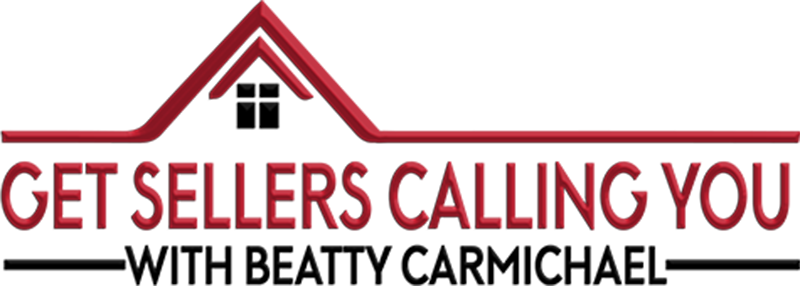
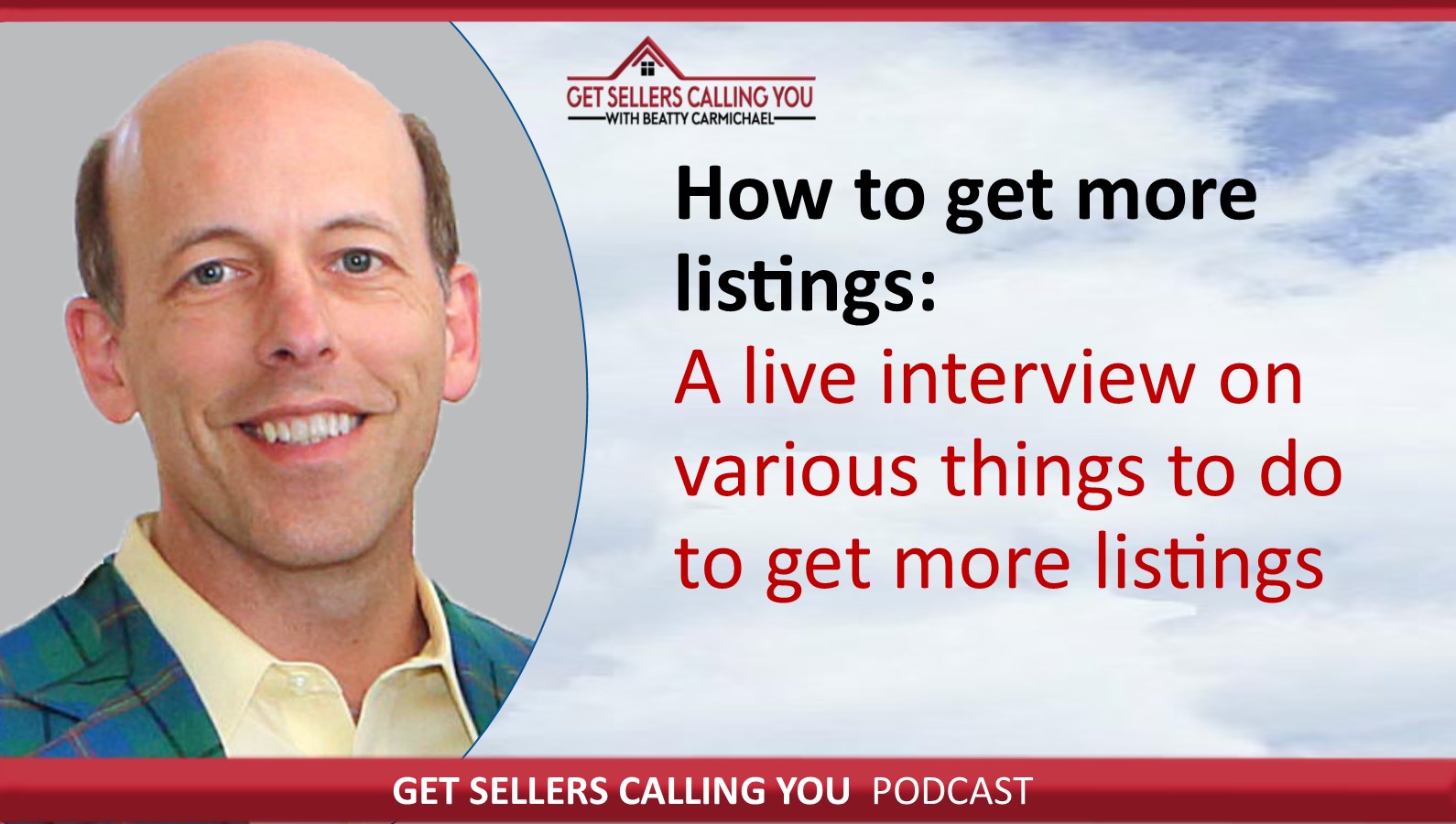
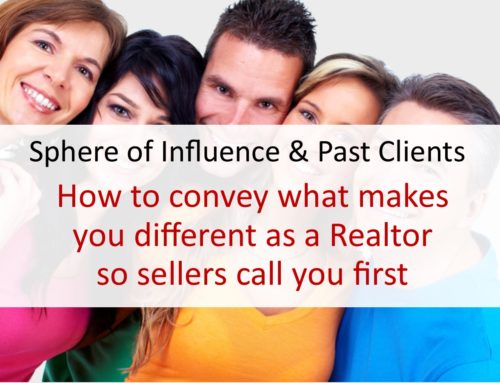
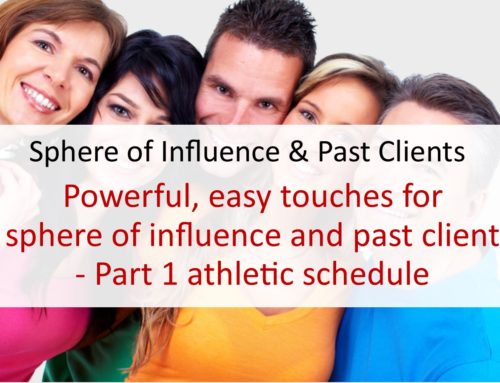
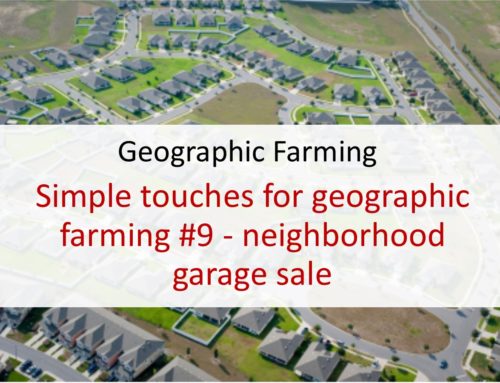
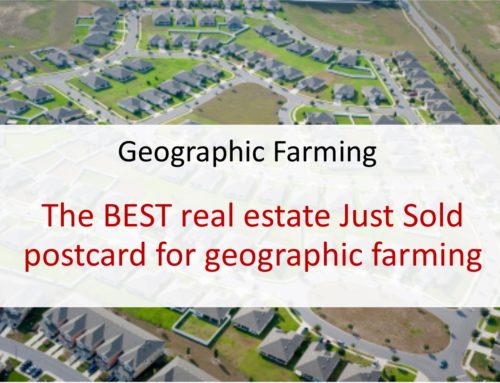
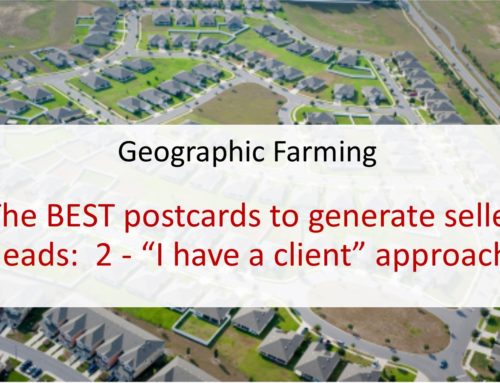

Leave A Comment